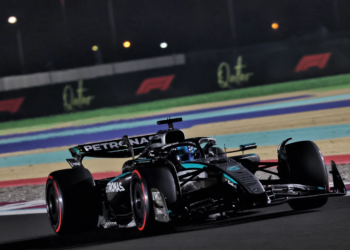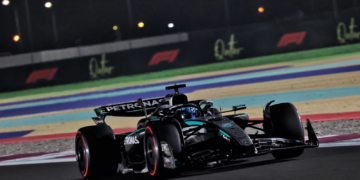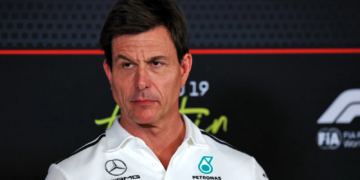Fernando Alonso says that it is in Formula 1’s nature to have a lack of overtaking moves throughout the grid.
Following last weekend’s Azerbaijan Grand Prix, discussion has been raised about the amount of overtaking opportunities that exist during races.
F1 cars in recent years have been reliant on DRS to complete moves, but the zones have been shortened for a number of events this year, including at this weekend’s round from Miami.
Drivers were critical of the shorter DRS zones last time out in Miami and Alpine’s Pierre Gasly has called on F1 to stop making them shorter compared to 2022.
But amid the concerns, Alonso suggested that it is normal for F1 to have a lack of overtaking opportunities.
“This is Formula 1, it has been always like this, [it] has been seven years [of Lewis] Hamilton and [Valtteri] Bottas first and second, has been in the past [Sebastian] Vettel and [Mark] Webber.
“If you have the fastest car you’re going to start a little bit behind and still maybe making some moves and overtakes and if you are in many other cars we are all within one-tenth or whatever.
 “So where you [are] qualifying, you’re more or less secure in that position and there’s not much overtaking after lap two or three.
“So where you [are] qualifying, you’re more or less secure in that position and there’s not much overtaking after lap two or three.
“Maybe here we can see some, so it may change Sunday. To [not] see many overtaking [moves] is the nature of Formula 1 so should not be a surprise.”
Last year, F1 introduced brand new technical regulations which aimed to decrease dirty air and improve overtaking opportunities.
Red Bull has been dominant in that period, winning 21 out of the 26 races held under the revised rules.
However, Alonso says that it is still too early to judge if the regulations have been a success or not.
“I think there were high expectations on following cars and having the grid a bit closer together, but I don’t know, I think we need to give a little bit more time,” he said.
“If we didn’t have the Red Bulls that much ahead I think it’s a very interesting fight with three or four teams in one or two-tenths [of each other] and we’re saying the new rules are a success.
“So maybe this is the story in a few years’ time or whatever when we have some stability on the rules – so maybe 2026 everything changes again.”










Discussion about this post